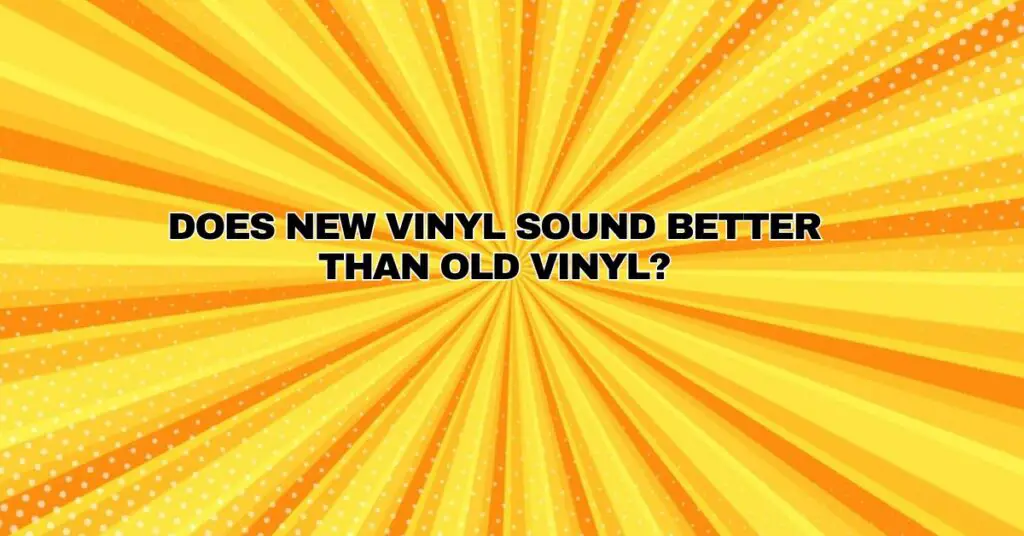The vinyl record format has enjoyed a remarkable resurgence in recent years, captivating both seasoned audiophiles and newcomers to analog sound. With the resurgence comes a critical question: Does new vinyl sound better than old vinyl? In this comprehensive article, we will explore the factors that influence the sound quality of vinyl records, dissect the nuances between new and old vinyl, and help you make informed decisions about your vinyl collection.
The Analog Magic of Vinyl
To assess whether new vinyl sounds better than old vinyl, it’s crucial to understand the analog nature of vinyl records. Vinyl records capture sound as physical grooves on the surface, with the stylus of a turntable tracking these grooves to reproduce sound. This analog process imparts unique qualities to vinyl, such as warmth, depth, and character, which audiophiles often celebrate.
Sound Quality Factors
Several factors influence the sound quality of vinyl records:
- Groove Depth: The depth and quality of the grooves etched into the vinyl are essential. Deeper, well-defined grooves are less prone to surface noise and tracking errors.
- Pressing Quality: The precision of the pressing process and the quality of the vinyl compound significantly impact sound quality. High-quality vinyl and precise pressing techniques yield superior results.
- Mastering: The mastering process, which involves preparing the music for vinyl reproduction, can affect sound quality. Well-mastered records, whether old or new, can sound exceptional.
New Vinyl Records
- Advancements in Manufacturing: Modern vinyl records benefit from advancements in manufacturing processes, including automated pressing techniques and quality control measures. These developments contribute to lower surface noise and consistent sound quality.
- Digital Recording: Many contemporary albums released on vinyl are originally recorded and mastered digitally. This can result in precise and clean sound reproduction, capturing the artist’s intent with accuracy.
- High-Quality Pressings: New vinyl releases often prioritize high-quality pressings, utilizing premium vinyl compounds and mastering techniques to optimize sound quality.
Old Vinyl Records
- Analog Warmth: Vintage vinyl records, particularly those from the analog era, are cherished for their analog warmth and character. Some listeners prefer the slightly “vintage” sound that older records impart.
- Historical Significance: Many iconic albums and classic recordings were originally released on vinyl during the analog era. Collectors value the historical significance of vintage records.
Subjective Nature of Sound Preference
The question of whether new vinyl sounds better than old vinyl ultimately comes down to personal preference. Sound quality is highly subjective, and what sounds better to one listener may not resonate with another. Some listeners appreciate the precision and clarity of modern vinyl, while others prefer the analog warmth of vintage records.
Conclusion
The choice between new and old vinyl records should be guided by your personal preferences and the specific qualities you seek in your listening experience. Both new and old vinyl records have their unique appeal, offering a diverse range of sound characteristics and historical significance.
Whether you embrace the precision of modern vinyl or cherish the analog magic of vintage records, the vinyl format continues to captivate music enthusiasts with its timeless charm and enduring appeal. Ultimately, the joy of vinyl lies not only in its sound quality but also in the tactile and immersive experience it offers—a bridge between the past and the present in the world of music.


